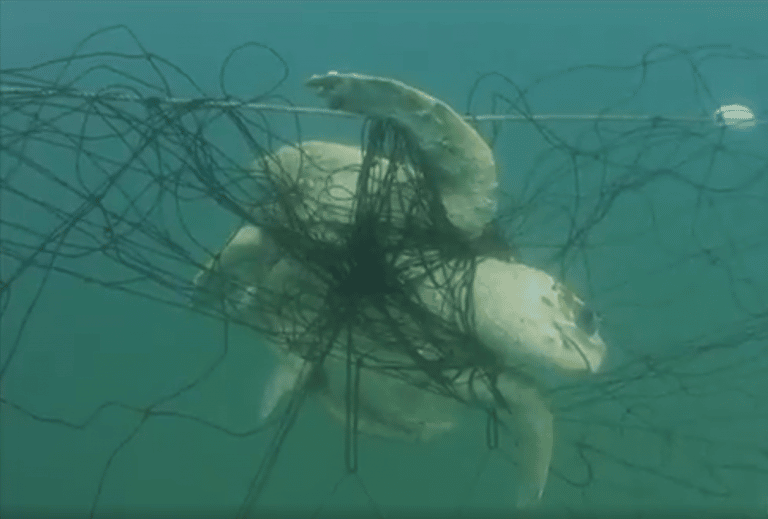SYDNEY (29 March 2025)—NSW Government scientists have issued a damning condemnation of the state’s shark nets, stating that they could find ‘no evidence’ that shark nets decrease fatalities. The Response to the Shark Meshing (Bather Protection) Program 2023/2024 Annual Performance Report, was released late on Friday by the NSW Government’s...
LIMA, Peru—Delegates from Humane Society International attending the 69th International Whaling Commission meeting in Peru, expressed bitter disappointment today that pro-whaling nations have once again voted against the creation of a whale sanctuary in the South Atlantic. The votes were 40 in favour, 14 opposed with 3 abstentions, therefore failing by just one or two votes to achieve the three quarters majority needed.
The proposal by Argentina, Brazil and Uruguay has been put forward at successive IWC meetings for the past 26 years—it was first proposed in 1998 by the government of Brazil, during the 50th IWC meeting held in Oman. If successful, the sanctuary would have would have banned any commercial hunting of cetaceans within its waters, extending from the East coasts of Uruguay, Brazil, and Argentina across to Western Africa and abutting the Southern Ocean Sanctuary that was established in 1994.
Grettel Delgadillo, deputy director of Humane Society International/Latin America, said: “It’s a bitter disappointment that the proposal for a South Atlantic whale sanctuary has yet again been narrowly defeated by nations with a vested interest in killing whales for profit. There was no legitimate reason to block this proposal except for vain self-interest. For the past 26 years, nations in the region have battled to create a safe haven sanctuary in their waters for whales who face continued threats from commercial whaling, entanglement in fishing gear, marine pollution, ship strikes and climate change. Some whale populations are also still struggling to recover following decades of commercial whaling in the twentieth century. It is a tragedy that once again the whales have lost the chance of a protection they need more than ever.”
Almost half of the world’s known species, subspecies and subpopulations of cetaceans, are listed as Critically Endangered, Endangered or Vulnerable. Species such as humpbacks, southern right whales and more inhabit the southern Atlantic, and these populations are still recovering from decimation due to intensive commercial whaling of previous centuries. It is crucial that the sanctuary is established to ensure that these whale species recover and thrive.
Despite this setback, whale-friendly nations voted by a resounding majority to accept a resolution proposal to reaffirm the global ban on commercial whale killing. The draft resolution was submitted by the European Union with 37 yes votes, 12 no votes and 8 abstentions.
Delgadillo said: “The EU tabled this compassionate and conservation-minded proposal to remind countries of their legal obligations pertaining to commercial whaling. Considering the persistent attempts by pro-whaling nations to dismantle the 40-year-old ban, the message behind this proposal is much needed. Thanks to the moratorium, the lives of hundreds of thousands of whales will have been saved and many species brought back from the brink of extinction. Commercial whaling is unethical, unsustainable and unnecessary so we welcome the passing of this proposal as a signal to all nations that the world must continue to save the whales.”
The global moratorium on commercial whaling was agreed to in 1982 and implemented from 1986 onwards because the high number of whales being killed was threatening the survival of whale populations. The moratorium is widely considered to be one of the most major conservation successes of our time. It has likely prevented the killing of tens or even hundreds of thousands of whales, blocked the expansion of commercial whaling for decades and allowed some whale populations to recover from cruel and unsustainable mass slaughter.
ENDS
Media contact: Matthew Smeal, Head of Communctions, msmeal@hsi.org.au


